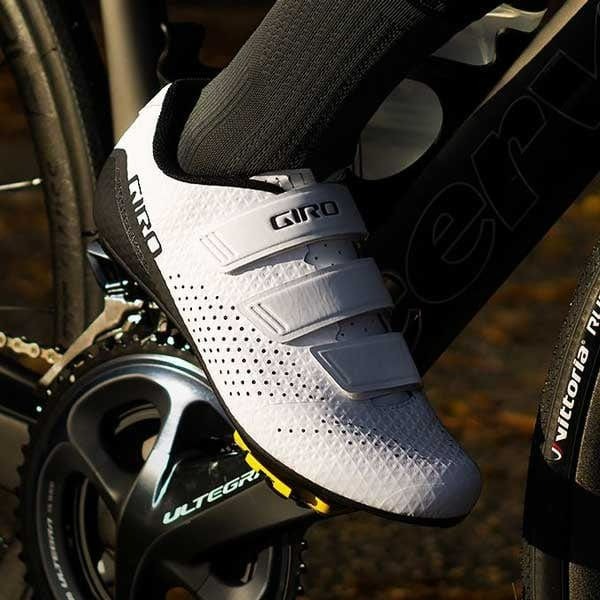Introduction to Squeaky Bike Brakes
Every cyclist knows the sound of a bike’s brakes, but when those brakes emit a persistent squeak, it can be both annoying and alarming. Squeaky bike brakes are a common issue faced by riders, and understanding the underlying causes is essential for maintaining a smooth, safe riding experience. In essence, squeaky brakes are more than just an auditory inconvenience; they can indicate various mechanical issues that, if left unaddressed, could compromise the effectiveness of your braking system.
Understanding the mechanisms that lead to squeaky brakes can empower cyclists to diagnose issues early, perform necessary maintenance, and improve their riding experience. Regularly inspecting and caring for your brakes not only enhances performance but also promotes safety on the road or trail. In this guide, we will explore the common causes of squeaky bike brakes, how to troubleshoot these issues, and effective solutions to ensure your bike operates silently and efficiently. Whether you’re a casual rider or a cycling enthusiast, this knowledge will help you keep your bike in prime condition, ready for your next adventure.

Common Causes of Squeaky Bicycle Disc Brakes
Squeaky bicycle disc brakes are a nuisance that disrupt the pleasure of cycling. There are several reasons why your brakes may begin to squeal when you come to a stop. Let’s break down the most common culprits affecting your bicycle’s disc brakes.
Worn Brake Pads
Brake pads are crucial for a quiet and effective stop. Over time, they wear down. Worn pads can’t grip the rotor smoothly. This causes high-pitched noises each time you brake. Check your brake pads regularly for signs of excessive wear. Replace them if they appear thin or have reached the wear indicator line.
Misaligned Calipers
Calipers are the components that house the brake pads. If they are misaligned, the pads won’t press evenly against the rotors. That uneven pressure leads to vibration and noise. Make sure your calipers are properly aligned. You can usually do this by loosening them slightly and then braking hard while the bike is stationary. This technique often helps the calipers to re-center themselves.
Dirty or Contaminated Rotors
Rotors attract dirt, debris, and oily substances. These contaminants interfere with the interaction between the brake pads and rotors. This results in squeaking during braking. Clean your rotors with a specialized disc brake cleaner. Wipe them regularly to keep them free of grime, which maintains optimal performance and quiet braking.
Step-by-Step Guide to Fixing Squeaky Brakes
To tackle the annoyance of squeaky bicycle disc brakes, follow this step-by-step guide. Addressing brake squeaks can be a simple DIY task if done carefully and methodically.
Cleaning the Brake System
Begin by cleaning the brake system thoroughly. Dirt and grime on the rotors or pads contribute to noise and reduced performance. Use a specific disc brake cleaner and a clean rag. Apply the cleaner and wipe the rotors gently. Do not touch the rotors with oily fingers. Also, clean the brake pads. If the pads are too dirty, they may need to be replaced.

Adjusting the Brake Pads and Calipers
Next, ensure the brake pads and calipers are in alignment. Loose or misaligned parts can cause squeaking when stopping. Adjust the calipers so that they sit evenly around the rotors. Tighten the caliper mounting bolts carefully. Test the brake by spinning the wheel and applying the brake.
Replacing Worn Components
Examine the brake pads for wear. If they are thin or have reached the wear indicator, replace them. Choose quality replacements compatible with your system. Fit new pads and secure them properly. If the squeaking persists after cleaning and adjusting, consider replacing the rotors as well.
By following these steps, you’ll have taken proactive measures to silence those noisy bicycle disc brakes and enjoy a smoother, quieter ride.
Tips to Prevent Brake Squeal in the Future
Maintaining your bicycle disc brakes regularly is key to preventing squeaks. Here are some practical tips to keep your ride silent:
- Keep the Brake System Clean: Dust, mud, and oily substances cause most brake noises. Clean your brakes after rides in wet or dirty conditions.
- Check for Alignment Regularly: Misalignment leads to uneven wear and noise. Regularly check and adjust your calipers to ensure they are properly positioned.
- Use High-Quality Brake Pads: Cheap pads wear out quickly and can be noisy. Invest in good-quality brake pads that suit your riding conditions.
- Schedule Regular Maintenance: Just like any other part of your bike, brakes need regular check-ups. Have your bike serviced by a professional at least once a year.
- Avoid Riding in Harsh Conditions: Whenever possible, try to avoid riding in extreme weather which can accelerate the wear and tear on your brakes and cause squeaking.
Following these steps can significantly reduce the chances of developing brake squeal, enhancing your cycling experience.

Tools and Materials Needed for Brake Maintenance
When it comes to bicycle disc brakes maintenance, having the right tools and materials is essential. Here is a list of items you will need to keep your bike’s brakes in top condition and to tackle squeaking issues:
- Disc Brake Cleaner: This is a special cleaner made for disc brakes that helps remove dirt, oil, and grime from your rotors and pads.
- Clean Rags: You’ll need several clean rags to wipe off the cleaner and any contaminants from the brake components.
- Allen Wrenches or Hex Keys: These tools are necessary for adjusting the calipers and tightening the bolts that secure the brake pads.
- Torx Wrenches: Some bike brake systems use Torx bolts, which will require Torx wrenches for adjustments.
- Brake Pad Spreader or Flat-head Screwdriver: This tool is used to separate the brake pads when installing new ones or for cleaning purposes.
- Replacement Brake Pads: Make sure you have the correct pads for your bike’s braking system.
- Sandpaper: If your brake pads are glazed, sandpaper can help roughen them up again.
- Isopropyl Alcohol: It’s an alternative for cleaning the rotors if disc brake cleaner is not available.
Having these tools and materials on hand will ensure you can perform regular maintenance and address any issues related to your bicycle disc brakes squeaking when stopping. Remember, always use tools and cleaners as directed and handle your bike’s components with care.
When to Seek Professional Help for Bike Brake Issues
While many squeaks can be addressed with the right tools and a careful approach, there are times when it’s best to seek professional help for bicycle disc brakes squeaking when stopping. Here are typical scenarios calling for expert assistance:
- Persistent Noise After DIY Fixes: If you’ve cleaned, adjusted, and replaced parts as needed, but the squeaking persists, a professional might need to diagnose deeper issues.
- Complex Brake Systems: Modern bikes can feature advanced brake systems that require specialized knowledge. If you’re not confident with the mechanics, a professional’s touch is needed.
- When Safety is a Concern: Brake failures can lead to severe accidents. If you doubt the reliability of your repairs, put safety first and consult a professional.
- Lack of Proper Tools: Certain repairs need specific tools not typically found at home. Professionals have the correct tools and know-how to use them.
- Time Constraints: If you don’t have the time to carefully diagnose and fix your bike’s brakes, it’s quicker and safer to get expert help.
Remember, working on your bicycle disc brakes should improve the situation, not compromise your safety. Trust a professional technician when in doubt, ensuring your bike is reliable for every ride.

